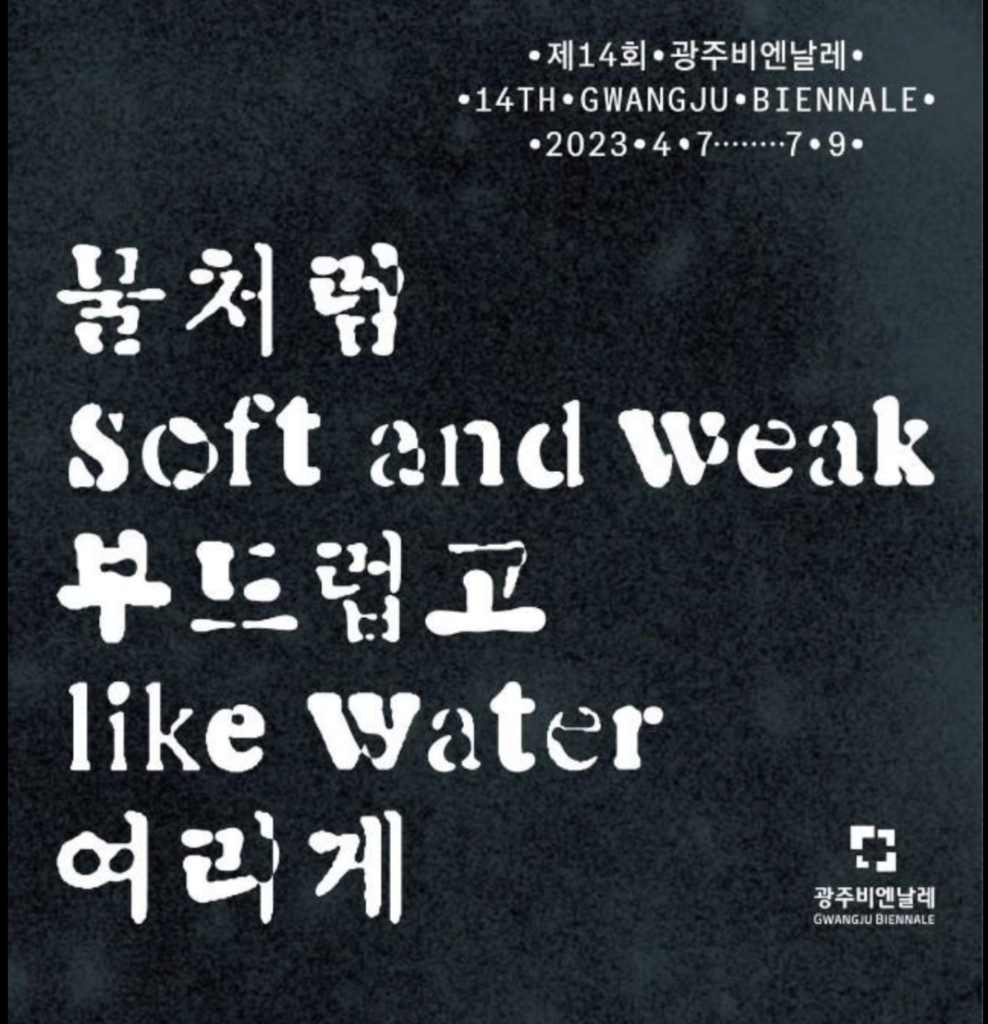The 14th Gwangju Biennale
7 April – 9 July 2023

The 14th Gwangju Biennale proposes to imagine our shared planet as a site of resistance, coexistence, solidarity and care by thinking through the transformative and restorative potential of water as a metaphor, a force, and a method. Soft and weak like water celebrates an aqueous model of power that brings forth change, not with an immediate effect but with endurance and pervasive gentleness, flowing across structural divisions and differences. Embracing contradictions and paradoxes – as “there is nothing softer and weaker than water, and yet there is nothing better for attacking hard and strong things” (Dao De Jing, chap.78) – the Biennale’s theme highlights the capacity of art to permeate deep into the individual and the collective, which enables us to navigate through the complexities of the world with a sense of awareness and direction.
Planetary Times
Considering the shared future of human civilisation requires a broad perspective that encompasses different or even conflicting views across borders. By exploring artistic practices that respond to the ongoing crises of humanity through the lens of relational cosmology that emphasises change, fluidity, and indeterminacy, Planetary Times imagines the Earth as a site of shared connections and removed boundaries that is entangled with the era of the Anthropocene. Such imaginary crossroads reveal a connected planetary viewpoint, beyond the perspectives that centers the human. The crisis of civilization brought forth by climate emergency, manifest in unprecedented droughts, forest fires, and floods around the world, prompts a fundamental reconsideration of unequal models of production and consumption, multinational corporations and late capitalist economic infrastructures and emphasises the significance of solidarity across borders. By presenting works that propose diverse and multifaceted responses to the crises that affect the entire world, this node sheds light on a ‘planetary’ perspective that moves beyond the ‘global’. In so doing, it seeks to move away from homogenous perspectives to value the lived, everyday experiences of artists and their activist possibilities.
